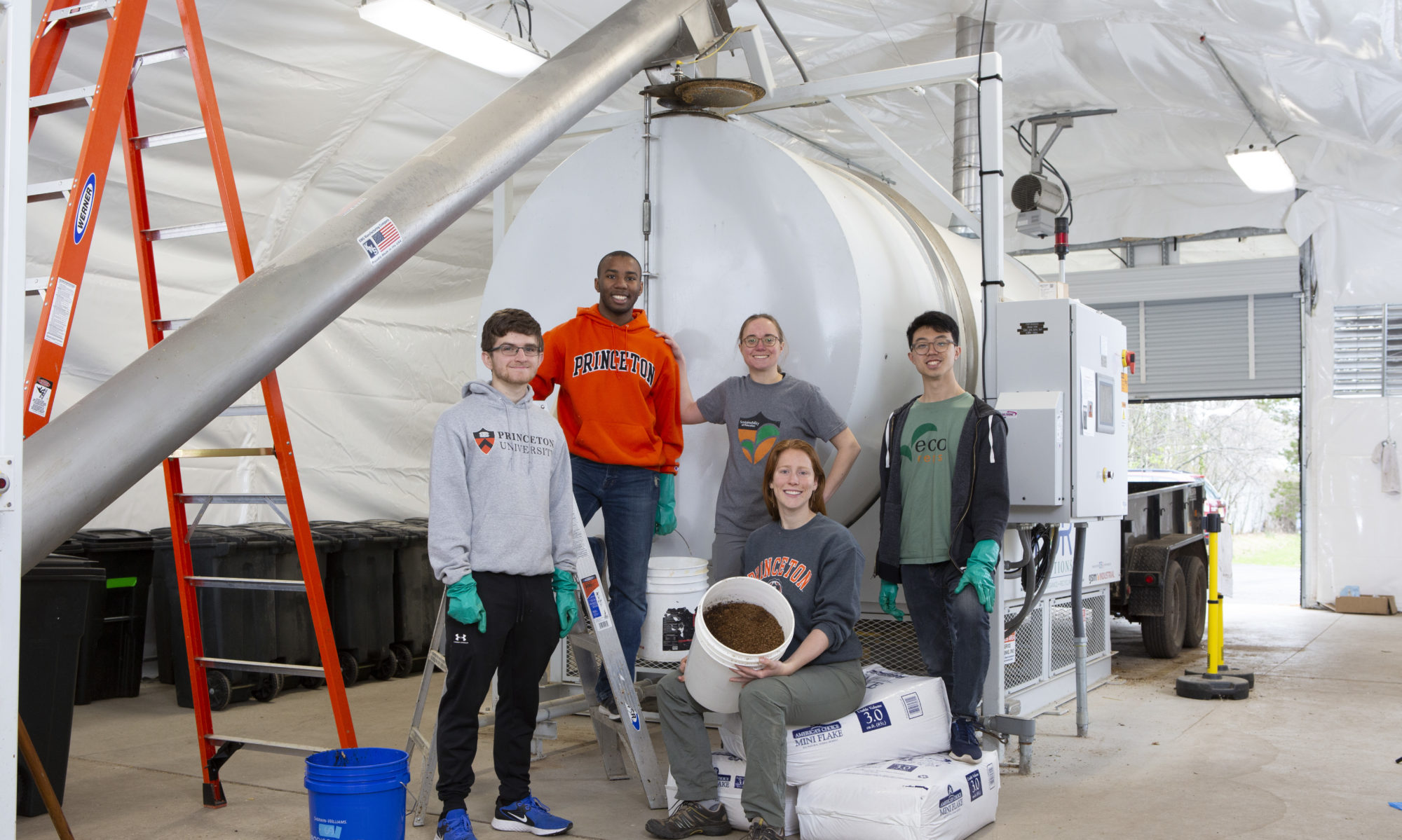It has been a difficult time in higher education, specifically here at Princeton with sudden cuts to federal research funding and an increase in the endowment tax. While Princeton is more well-positioned than other universities, we have been planning for reduced budgets across the board, including in Facilities.
Since 2018, the Sustainable Composting Research at Princeton (S.C.R.A.P.) Lab has served as a meaningful Campus as Lab and campus engagement resource while converting a portion of the campus’s wasted food into a nutrient-rich soil amendment for campus grounds. Key highlights of the project so far have been:
- Diverting and recycling over 355,000 lbs. of wasted food into compost
- Receiving $100k in grant funding from both internal and external sources that have supported student and faculty research and teaching, while also working toward advancing industry knowledge in the circular materials economy.
- Dr. Xinning Zhang’s FRS 115: Decomposing the Science of Composting: How to Turn Waste into Resource course and several other Campus as Lab projects.
- Employing dozens of students who have gained real-world skills in sustainable event planning and materials management as compost operational assistants and bin monitors
After the Spring 2025 semester we finished our pilot period of the campus demonstration operations and successfully advocated for the S.C.R.A.P. Lab to become a permanent part of Facilities Operations due to the benefits to both campus sustainability and to the university’s core research and teaching mission.
Unfortunately, due to the recent hiring freeze, we haven’t been able to hire the necessary staff to help us continue and grow our on-site composting efforts. Until we can hire more personnel, we will have to sadly pause our composting operations. It’s disappointing and a shock that external forces beyond our control are impacting our ability to continue this successful project.
For the next academic year, this means that we will no longer be collecting food scraps and compostable diningware at the Frist Food Gallery or at small department events. However, to keep the composting system from shutting down completely, we will be processing coffee grounds only from campus cafes like the Coffee Club. This amount will be substantially less than the 15 tons of wasted food and other compostable material we diverted and recycled into compost in the 2024-2025 academic year. Rest assured, that all leftover food from Frist, as well as plate scrapings and leftover food from dining halls will still be picked up by our organics recycling hauler for repurposing as animal feed or used to produce biogas at the Trenton Renewables anaerobic digestor facility.
At this point we will enter a data analysis phase to package all the project’s data, results, and accomplishments to date, including a successful NJ Department of Environmental Protection compostables grant research project in which we demonstrated that in-vessel composting technology can help address the infrastructure gap for processing compostable food serviceware. Read our latest blog post, “Are compostable products actually compostable?” to learn more.
Despite the external challenges facing Princeton, we are still committed to leveraging Princeton’s unique position to lead by example and drive positive change for people and planet. Thank you to all the organizations, departments, and individuals who have contributed to the S.C.R.A.P. Lab’s success since 2018. We appreciate your efforts to drive sustainability action through composting operations, and we look forward to a time in the future when we can reintroduce SCRAPPY at full capacity.
